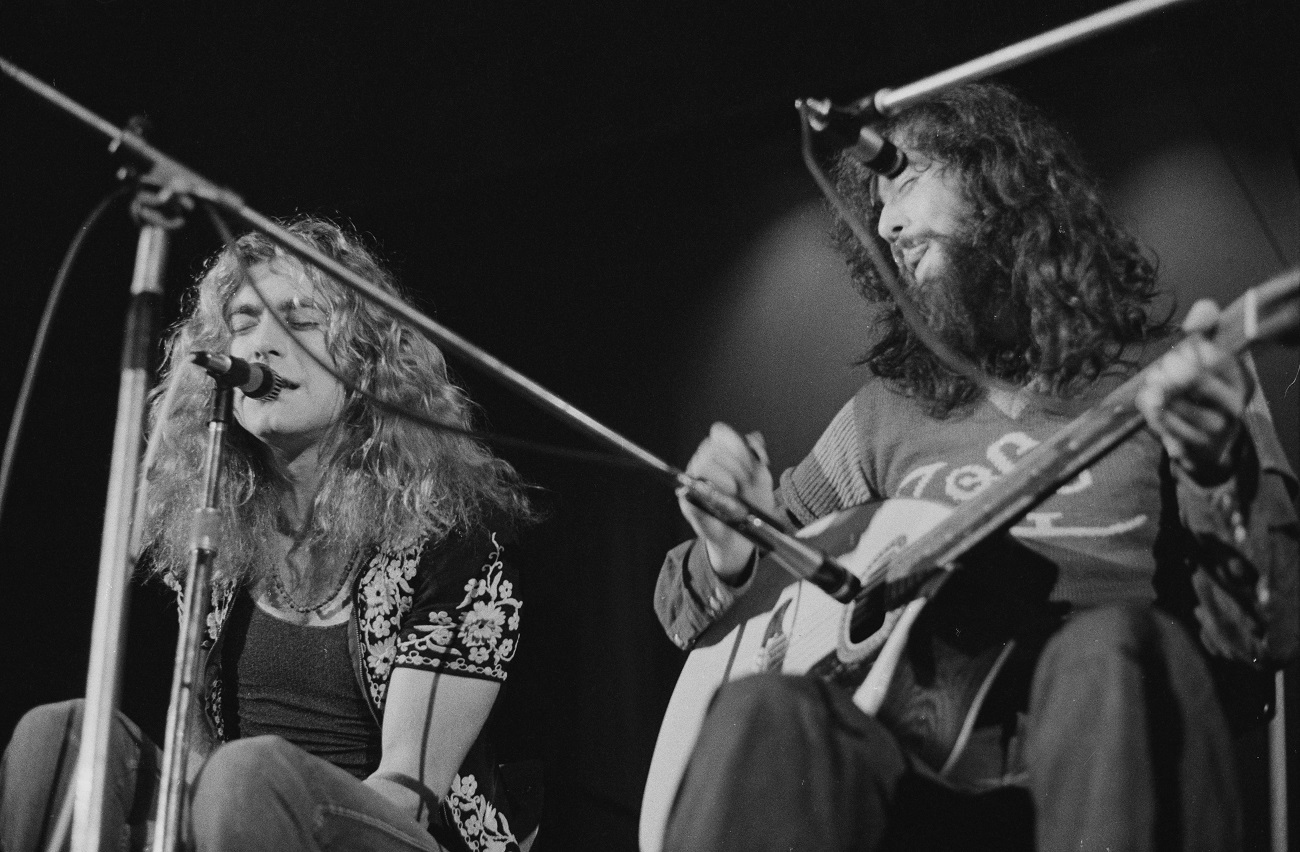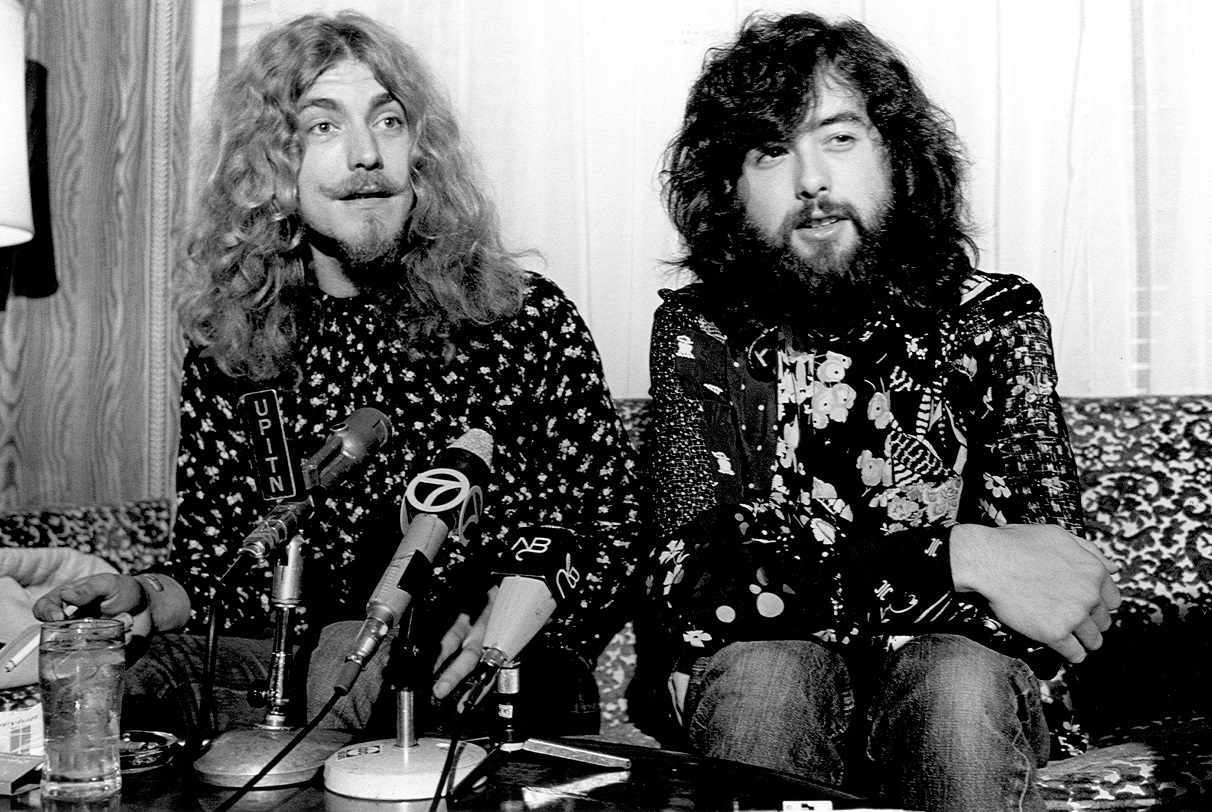The Eerie Led Zeppelin Blues Tracks Left Unreleased After the Sessions for ‘III’
When he remastered and re-released each album in the Led Zeppelin catalogue, Jimmy Page included a number of rough mixes and alternate takes on bonus discs. That turned up some rocking tracks, including the instrumental “St. Tristan’s Sword” that dated back to July 1970.
That was a fertile period for the Zep. At that point, the band had notched its first Billboard No. 1 album and moved to expand its musical palette on Led Zeppelin III. And even if the record didn’t receive widespread critical acclaim (that changed later), the Zep had made its statement.
At the close of III, Zep fans heard the curiosity that was the recording of “Hats Off to (Roy) Harper.” Featuring only Robert Plant on vocals and Page on acoustic guitar, it was the first released track that hadn’t featured the participation of John Paul Jones.
During the same session, Page and Plant recorded two more blues tracks. When they finally went out with the III reissue in 2014, the recordings offered fans a glimpse of Zep blues at its eeriest.
Led Zeppelin’s haunting ‘Key to the Highway’ / ‘Trouble in Mind’ turned up on the ‘III’ reissue

In Light and Shade: Conversations with Jimmy Page (2012), Zep’s mastermind explained how the band got the unusual sound on “Hats Off to (Roy) Harper.” “I had this old Vox amp, and one day Robert plugged his mic into the amp’s tremolo channel. And I started playing and he started singing,” Page recalled.
But while “Hats Off” was a high-energy blues featuring wild slide guitar and shouted vocals, the pair of blues standards Plant and Page followed with feel different. For starters, they begin with a more subdued feel. And Plant’s vocals take on a haunted tone in the quiet passages.
The first track, “Key to the Highway,” tells a story of a rambling man. Plant sounds very much at home singing this material, and Page is right there with him, note for note. Credit for this one goes to Charlie Segar and Big Bill Broonzy, both of whom recorded versions at the start of the ’40s.
After a lengthy harmonica solo, Page and Plant slide straight into “Trouble in Mind” (starting around 2:10). That track, written by Richard M. Jones, dates all the way back to the ’20s.
Led Zeppelin had a surplus of tracks to choose from after the ‘III’ sessions

Given the remarkable performance of “Since I’ve Been Loving You,” it’s clear Led Zeppelin wasn’t stepping away from the blues around the release of the band’s third album. Yet you can see why the band would go with other tracks rather than “Key to the Highway” / “Trouble in Mind.”
By that point, the Zep had grander ambitions, many of which arrived with the release of Led Zeppelin IV. But in any event, the band had far too many tracks to fit on one album following the sessions for III.
In addition to these blues and “St. Tristan’s Sword,” the band also had “Hey, Hey, What Can I Do” ready. For a group that almost never released singles, there was simply no place to put all the material. So many hung around until Page went back to the vaults in the early 2010s.


